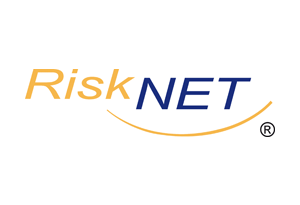The European Corporate Sustainable Due Diligence Directive (Directive 2024/17602) marks a significant advancement in sustainability legislation within the European Union. It mandates that companies must prevent and mitigate adverse impacts on human rights and the environment across their entire supply chain, including subsidiaries and business partners. Companies must also implement climate change strategies in alignment with the Paris Agreement. The directive, which was published on July 5, 2024, will come into force in late July 2024 and must be integrated into national laws by July 26, 2026.
Globalization has led to interconnected supply chains but also to widespread environmental and human rights abuses. Scandals related to poor working conditions and environmental degradation have underscored the necessity for corporate responsibility. Various voluntary initiatives and national laws (e.g., Germany's Supply Chain Due Diligence Act) have been steps forward but lack comprehensive effectiveness. The new directive aims to address these gaps by imposing stricter, more encompassing regulations.
Key Aspects
The directive targets EU companies with over 1,000 employees and a turnover exceeding €450 million, extending its scope to non-EU companies meeting these thresholds within the EU. Companies must conduct due diligence on environmental and human rights risks, develop climate action plans, and involve stakeholders in these processes. Compliance will be monitored and enforced by national authorities, with significant penalties for violations.
Challenges and Opportunities:
Critics highlight the economic burden, especially on SMEs, and the administrative complexities of compliance. However, proponents argue that sustainability will bring long-term economic benefits. Non-EU companies must also ensure their supply chains meet these standards, necessitating international cooperation. Compliance can improve a company's public image and open up new business opportunities by meeting increasing consumer and investor demands for sustainable practices.
Comparable Regulations
Other regions, including the US and Asia, have similar but less comprehensive regulations. Examples include the US Dodd-Frank Act (conflict minerals) and Australia's Modern Slavery Act. These regulations vary in scope and implementation compared to the EU's directive.
EU Member State Responsibilities
Member States must designate supervisory authorities by July 26, 2026, to oversee compliance, with phased implementation based on company size and turnover. Authorities will have the power to conduct investigations and enforce penalties. Sanctions can include fines up to 5% of a company's global turnover, with detailed reporting requirements to ensure transparency.
Implications for Global IT Service Providers
IT service providers will need to scrutinize their supply chains, adjust contracts, implement comprehensive risk management systems, and integrate climate action into their business models. Non-compliance can lead to significant legal and reputational risks.
Link Between Financial Soundness Indicators (FSIs) and Sustainability
FSIs assess the health and stability of financial institutions, which in turn support sustainable economic activities. Adequate capital, high asset quality, profitability, liquidity, and efficient operations contribute to sustainable development by enabling long-term investments in green technologies and practices. The integration of FSIs with sustainability goals can enhance financial resilience and promote sustainable growth.
Outlook
The directive represents a paradigm shift towards integrating human rights and environmental standards into corporate governance. While challenging, it offers substantial opportunities for companies willing to adapt. By fostering sustainable practices, companies can gain a competitive edge and contribute to a more equitable global economy.




